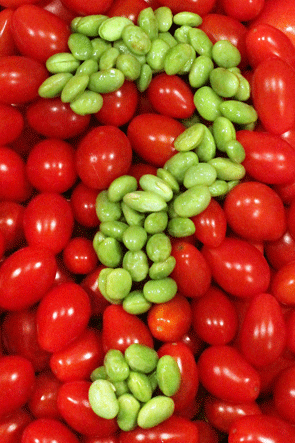Top 10 Nutrition Myths Busted

1) Eating late at night makes you fat
Calories are calories no matter what time of the day they are eaten. If you routinely overindulge after dinner, it's the overindulging that's sabotaging your weight-control efforts, not the hour on the clock.
But what if dinner is late or you're hungry before bed? By all means, eat. Feed and fuel your body. No harm is done if you're balancing your calories over the day and not sacrificing food for junk food.
Finally, if you train in the evening, eating at night is not optional: You must eat to replace the nutrients you've just lost. Depending on the activity, you'll need water, electrolytes, carbohydrates and protein.
Bottom line is what you eat and how much you eat is far more important than when you eat it. But do make a point to spread your food intake out over the day to sustain your energy.
2) Cholesterol-free foods are heart-healthy
While it's a good idea to limit egg yolks, whole milk, liver and other high-cholesterol foods, it's just not that simple.
Even more detrimental to your blood-cholesterol levels are the amounts of saturated and trans fats you eat. There are plenty of supermarket shelves that contain no cholesterol, but are rife with artery clogging saturated and trans fats.
Scrutinise the nutrition facts panel carefully to see what's in your cholesterol-free margarine, cookies or crackers. Chances are good that they're loaded with either saturated or trans fats, or both.
3) Water is all I need to rehydrate after exercise.
If you sweat a lot during exercise or other work, then you'll likely need extra sodium along with your fluids.
Since sweat contains water, sodium and other electrolytes, rehydration requires more than water. Isotonic drinks provide small amounts of sodium--roughly 50 to 200 milligrams in 8 ounces--and are often critical during activities lasting an hour or more. But they will not suffice for recovery.
Drink small amounts of a sports / Isotonic / Amino Acid drinks throughout a workout lasting longer than an hour, and consume salty foods and water afterward.
4) I should drink eight glasses of water a day.
There's no need to measure your water intake. Under usual conditions, let thirst be your guide. You can meet your water needs from plain water, flavoured water, juices, milk, as well as fruit and cooked food.
And there's good news for all you coffee and tea lovers, these contribute to our water needs.
Hydration during endurance exercise is a different story. If you do not drink enough during exercise, you do risk dehydration. To gauge your hydration status and your fluid needs during exercise, weigh yourself before and after. Your post-exercise weight should not be more than a couple pounds lighter than your starting weight. If it is, you're not drinking enough appropriate fluids during activity.
All beverages and even food contribute to your fluid needs. Drink to your thirst except during intense exercise and after. Then you may need to drink according to a schedule.
5) Diet drinks help keep you slim.
The obesity community is becoming increasingly aware that the artificial sweeteners used in diet soda—aspartame and sucralose, for instance—lead to hard-to-control food urges later in the day.
One study discovered that rats took in more calories if they’d been fed artificial sweeteners prior to mealtime, and a University study found that people who consume just three diet sodas per week were more than 40 percent more likely to be obese.
Try weaning yourself off by switching to carbonated water and flavouring with lemon, cucumber, and fresh herbs.
6) Yogurt is good for the bacteria in your belly.
Sure, some yogurts contain beneficial bacteria that can send reinforcements to your gut when you need them.
Lactobacillus acidophilus is the bacteria you want to look for, with yogurts that say “live active cultures.”
But most yogurts are so high in sugar that they do more to promote unhealthy gut bacteria than anything else. (Unhealthy bacteria feed on sugar in your belly the same way they do around your teeth.)
7) “Multi-grain” and “wheat” breads are better than white bread.
Wait a minute—isn’t “multi-grain” one of the biggest buzzwords in nutrition? And haven’t we been trained to pick the wheat bread over the white at every turn? Yes, but unfortunately those labels are about as credible as your local politician’s campaign promises.
“Wheat bread” is generally white bread with caramel or molasses added to make it look dark and healthy. “Multi-grain” just means that different kinds of refined grains may have been used.
Always look for the words “100% whole wheat” or “100% whole grain” on the package.
8) Nutrition bars are actually nutritious.
In a world where we really called it as it is, nutrition bars would be known by another name: calorie or health bars. Most of them are so polluted with additives that their ingredients list looks like Charlie Sheen’s blood test results.
For example, PowerBar Vanilla Crisp touts itself as “fuel for optimum performance,” but unless you’re talking about a performance by The Chemical Brothers, we’re not sure exactly what they mean.
With four different types of sugar, it packs more of the white stuff than an adult woman should eat in an entire day. If you like the idea of a snackable bar that packs in the nutrition, read the ingredients carefully.
9) Fresh produce is superior to canned or frozen produce.
Canned and frozen produce have nutrient contents comparable to that of even the freshest produce. But did you know that some "fresh" produce is picked long before it reaches the store? In this case, frozen may be fresher than fresh!
Additionally, canned and frozen produce can be a helpful way to get more variety during winter, when fresh produce is either not available or too expensive.
Remember - Any vegetable is better than no vegetable at all.
10) Your body needs a "cleanse" every once in a while.
Our bodies already have a built-in detox system — our lungs, liver, kidneys and digestive tract all work together to eliminate toxins from our bodies.
Detox diets set you up for even more weight gain when you go off of them, since they typically result in muscle loss.
Long-term detoxing will deprive your body of the essential vitamins, minerals and nutrients it needs to function. Choose an eating pattern that promotes health.



